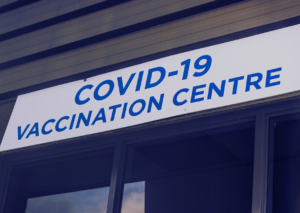
In the run up to COVID-19 vaccination rollout in early 2021 data showed a huge disparity in vaccine hesitancy between communities in north-west London.
In a survey of more than 5,500 residents run by Healthwatch Hillingdon, with the North West London (NWL) Collaboration of CCGs, the data was showing some early disparities between communities with regard to proposed take-up of the vaccine, which required further investigation.
This disparity suggested a serious disconnect between the healthcare service and some community groups, and ICHP joined the Collaboration of CCGs to explore ways in which to better engage with these groups and empower them with better knowledge around the vaccines.
A Healthwatch Hillingdon survey, published in late 2020 found that although overall 83% of respondents said they would take the vaccine, there were huge disparities in vaccine hesitancy between different communities.
Reasons for hesitancy also varied by ethnicity with a quarter of those who said they were unsure, or who said no, saying they did not have enough information to make a decision.
At the start of 2021 the NWL Collaboration of CCGs
Two Community Engagement events were held in January 2021, the first, hosted by Imperial College Health Trust, addressing a broad range of COVID-19 issues, and the second, hosted by Healthwatch and codesigned by ICHP, focused on vaccines.
More than 200 community members joined the vaccine community event and were able to ask questions of community doctors, nurses and vaccine experts. Many of the attendees were community leaders who were encouraged to cascade the information within their own communities.
Following the vaccine event feedback was gathered from more than 50 community events around NW London, including interfaith forums, carers meetings and community trusts. This allowed the group to better understand views and concerns from minority communities.
Key hesitancy themes were identified, including safety and effectiveness, cultural appropriateness, practical issues, historical and cultural context and interpersonal issues.
ICHP then joined a COVID-19 vaccination workshop, attended by engagement leaders from across NW London, to implement the ambitions set out in the engagement plans and ensure that a coordinated approach was developed to collaborate across the system and with communities to provide information, awareness and support. Community engagement events were also staged to help inform communities about how services would be accessed during Covid and provide more details on the vaccine rollout.
Although these events were well attended, it became clear that the more hesitant communities were not going to them. Instead, communities were organising and holding vaccine hesitancy event themselves, enabling a more open and honest conversation about why the reticence remained, and what questions were outstanding to enable people to make an informed decision for themselves and their elderly family members.
The Collaboration of CCGs were quick to realise that communities were mobilising themselves, and worked with community advocates and leaders to ensure the involvement of relevant community GPs and experts, so they were on hand to respond to any concerns. Through this approach we could see communities starting to help dispel the myths and accept the offer of vaccination.
The agreed approach was:
There was a clear shift in power to community organising, and discussions were had with all the local authorities as to the benefits of mobilising community, not only for vaccine rollout but also other community-based issues that required public opinion. ICHP supported the initial development of creating a Community Champions Development Framework, identifying and empowering community representatives, particularly GPs, to appear at community events and speak about vaccination. Community Champions were recognised as a fundamental part of the WHO’s COVID-19 Vaccination Theory of Change Model. At the present time, Community Champions remain within their current local authority footprint.
In addition to these very real discussions with communities, that were invaluable, the NWL Collaboration of CCGs launched a series of co-production huddles, which ICHP was invited to join. The huddles met weekly, with the aim of improving vaccine equity through reducing variation in the uptake of Covid-19 vaccines across our communities in North West London (NW London).
These huddles brought together stakeholders from across health and care, local authority, the voluntary sector and our local communities to discuss a range of key topics and challenges underpinning the vaccine rollout and how similar issues of inequality had impacted on the vaccine rollout.
Through ICHP’s access to North West London’s Whole Systems Integrated Care (WSIC) integrated data source, we were able to build a COVID-19 dashboard which allowed the huddles to see data including first doses administered, second doses administered and refusals, broken down by ethnicity and age.
This allowed huddle members to better identify communities with greater hesitancies, to then engage and build a better picture of the reasons behind these hesitancies and how best to address them.
The data provided by ICHP was also cascaded across NW London to stakeholders including local authorities, PCNs and voluntary organisations, to help them focus their vaccine uptake work.
ICHP provided a breadth of data on vaccine uptake which allowed us to understand our situation in north west London, identify areas of focus and celebrate improvement.
“ICHP supported us to link the quantitative data and qualitative insights which helped us better understand the tensions at play and stimulated rich discussions across the group about what we should do next.
“As a result of the huddles, we were able to share learning from delivering elements of the vaccine programme to support wider uptake, foster cross-organisational relationships which will be sustained beyond this work and surface insights about the root causes of inequality in our local communities. ICHP were fundamental to the success of this work and their use of data, specifically WSIC, was invaluable to driving progress in vaccine equity.”